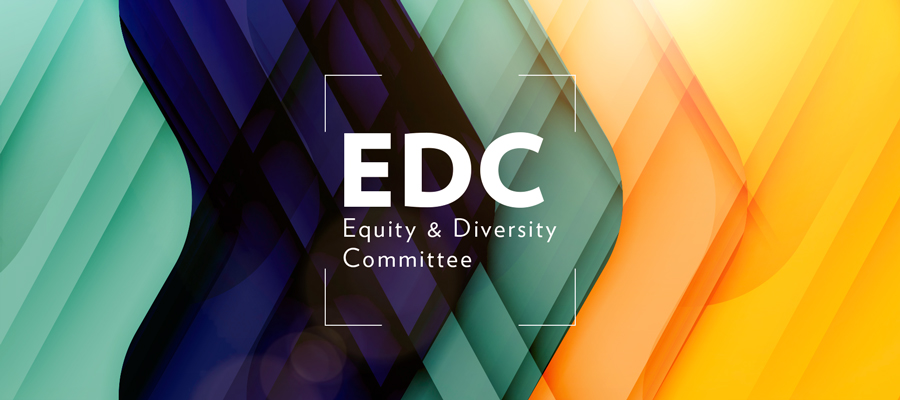Uncovering and giving voice to the histories of discrimination and resistance on our campus is difficult work, revealing uncomfortable truths while taking stories of hate and violence out of the shadows of UW–Madison’s past.
At the same time, these acts of reflection and reckoning can also be “a balm for the soul” as we work toward building a more equitable campus community, says UW–Madison Public History Project Director Kacie Lucchini Butcher.
“In uncovering these stories, we also uncover stories of hope and resilience, stories of struggle and protest, and stories of community and collectivity,” Lucchini Butcher explains. “We have to know this history—even if it’s uncomfortable and hard to face—because it’s an instrumental part in enacting forms of historical justice and in changing the university.”
Join us Tuesday, June 29: 10-11:30am
Lucchini Butcher will explore these concepts and stories in an upcoming event sponsored by DoIT Equity & Diversity Committee: Reckoning With Our History: UW–Madison’s History of Discrimination and Resistance. The presentation and Q&A will take place Tuesday, June 29, 10-11:30am. The event is open to all in the campus community, and registration is not required.
With a focus on the historical context and origins of racism and discrimination at UW–Madison, topics will include the following:
- The experiences of marginalized people on our campus, including African Americans and Indigenous Americans; with a brief overview on how the United States historically funded land-grant universities with expropriated Indigenous land
- Some “notable firsts” (including the first African American male and female graduates of the university, their journeys, accomplishments and struggles)
- Historical stories and context about housing discrimination on campus
- Information on resistance movements on campus, reflecting a long history of protest, activism and fighting for change
Housing discrimination is one of the best illustrations of how difficult it was culturally and socially to live in Madison and attend or work at UW–Madison in the early 1900s and beyond, Lucchini Butcher explains.
One notable example: Carson Gulley was a famed UW chef, instructor and local TV and radio pioneer, serving as head chef at UW–Madison from about 1927 to 1954. He was effectively a “cult sensation” at the university, Lucchini Butcher explains. And yet Gulley, an African American, was forced to live on campus due to housing discrimination in the Madison area.
Another common misconception is that the act of protesting at UW–Madison began in the 1960s with anti-war and civil rights demonstrations.
“That’s perhaps one of the biggest myths about UW,” Lucchini Butcher explains, noting a student-led protest tied to a controversial quote included on the Class of 1910’s class gift, which was rejected by the Board of Regents for suspected ties to socialism. “In reality, students have been protesting at UW from the start. There’s a long history of UW students, faculty and staff fighting for change on campus.”
About the UW–Madison Public History Project
The UW–Madison Public History Project is a multi-year effort to uncover and give voice to the histories of racism, discrimination, and resistance at the university. The project’s aim is to continue and expand upon ongoing conversations about the history of UW–Madison and discuss how we can all work toward building a more equitable campus community.
“The question often comes up: What’s the point of studying history, or funding this project? In other words, ‘Why bring up all this bad stuff?’” Lucchini Butcher asks.
“The big takeaway is that our history helps us understand how we got here, and why the stakes for this moment are higher. It helps us to contextualize current anti-racist movements, and connect them to other movements for change in our community.”
Lucchini Butcher says she often encounters people in the UW–Madison community who genuinely want to explore the university’s difficult history and wrestle with tough issues, but they perhaps don’t have the spaces to do it among family or friend groups. Opportunities like the EDC event help to offer that space for exploration, questions and discussion.
“Knowing the long arc of racism and discrimination at UW–Madison will help us make better decisions moving forward, and to see the role we all have to play,” she added. “Ignoring these histories, even if they’re uncomfortable, allows them to continue to haunt the campus. We must own up to the past, or we will continually be plagued by it.”
Learn more about UW–Madison Public History Project at https://publichistoryproject.wisc.edu/.
Questions?
The June 29 Zoom event will offer the opportunity for Q&A. If you would like to submit your question in advance, you may send an email to klbutcher@wisc.edu.
Accessibility Note
If you need an accommodation to attend or participate in this event, please contact laurel.belman@wisc.edu. All accommodation requests should be made no later than Tuesday, June 15. We will attempt to fulfill requests made after this date, but cannot guarantee they will be met.
